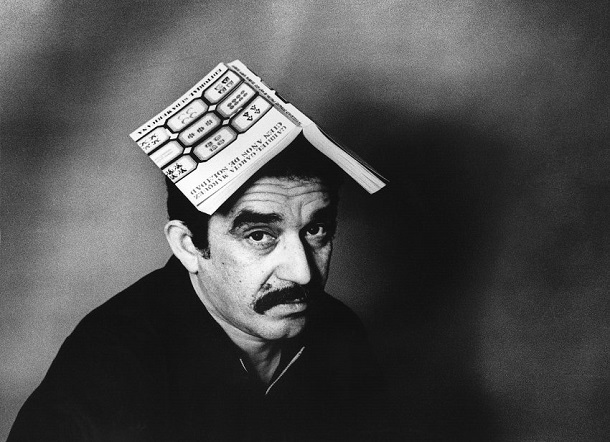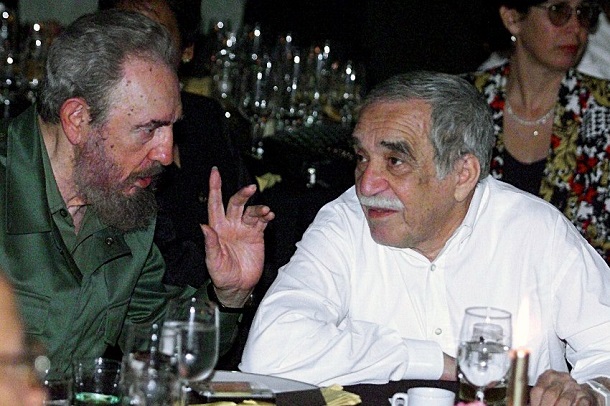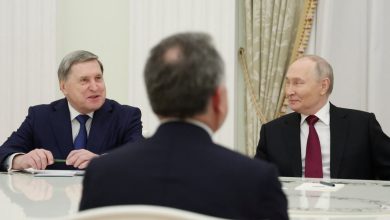Anti-Imperialist and linker in the best sense: The Colombian Nobel Gabriel Garcia Marquez was one of the most important political voices of Latin America and as inviolable friend of Fidel Castro to the end.
A few days before his death, the Colombian Gabriel García Márquez made again unintentionally a declaration of love. In a survey they voted him one of the greatest role models and one of the most influential figures in the history of the country.
In his home country, the writer had long been a class and generational symbol of national pride. The Colombian García Márquez had long since forgiven that he previously returned the country decades back, because his left-wing political views clashed with the conservative Machtestablishment. 1981 García Márquez fled straight from Colombia, because the then President Julio Turbay suspected him to finance the guerrilla M-19. The writer applied for asylum in Mexico.
About half of his life spent García Márquez outside Colombia, most of the time in Mexico, where he died on Holy Thursday at the age of 87 years. In Mexico, was 1965-1966 and “One Hundred Years of Solitude”, the work that established the world fame of the writer.
When he was catapulted with this novel suddenly on the world stage , but he had long been recognized as an essayist , commentator and intellectuals a name in Latin America. ” Gabo ” manifested itself in international leaves early on various topics from politics and society . For him it was to be the same no contradiction , novelist and political writer . On the contrary, the conditional for García Márquez always the other. In his literature, he drew his chronicles and family stories ever in front of a historical and political context. In life outside of writing , he was a political head with dedicated opinions.
Gabriel García Márquez was stricter anti – imperialist, a linker in the best sense , but never let yourself miss out on a label : The Playboy magazine asked him in 1983 in an interview whether he was a Communist . Almost angrily , he replied : ” . Course not Am I not , I never was I never was a member of a party. . ”
Gabriel Garcia Marquez Dead:Mighty friends
But he always clung to the powerful and was , without ever having been tried fascinated by the aura of power , they exert themselves.
In this he differed fundamentally from colleagues such as Rómulo Gallegos to the writer , the short-term President of Venezuela in 1948 , or his temporary friend Mario Vargas Llosa, who in 1990 unsuccessfully ran for the highest office in Peru. Even the Chilean Pablo Neruda, early admirer of García Márquez , 1969, shortly presidential candidate for the Communist Party and later became times of President Salvador Allende ‘s ambassador to Paris.
The Colombians never succumbed to these temptations . ” García Márquez is an icon that is interwoven in an intimate way with the historical and political events in Latin America ,” his British biographer Gerald Martin once described him . “But he always wanted to be a witness of the power.”
For Gabo used his life friendships with great politicians. Some relationships were fleeting , others permanent. Thus, the Spanish Socialist and former Prime Minister Felipe González was as much to his friends as former French Prime Minister François Mitterrand and U.S. President Bill Clinton. The latter was also , set aside the years of ban on entry into the United States , which had been imposed on García Márquez because of its allegedly subversive views.
His most intimate , longest and most controversial friendship entertained for the Colombian Cuban revolutionary leader Fidel Castro . She was for 58 years steadfastly : “I am one of those that can be buried with their friends ,” Gabo once described his relationship with the Cubans. He lived for a time in Havana, where Castro made him a luxurious villa. There, the two most charismatic Latin Americans of the twentieth century led countless conversations about food, literature and politics.
Gabriel Garcia Marquez Dead:”For Europe, South America is a man with a mustache”

Gabriel García Márquez also held on to Fidel Castro when the persecution political dissent increased to Cuba and then almost all left-wing intellectuals and writers of Ibero-America broke away from the Socialists. Mario Vargas Llosa switching García Márquez on the New York PEN Congress in 1986 a “courtier Castro”.
The connection between Gabo and Castro was so close that the Nobel Prize for the literati was celebrated in 1982 on the island so extensively, as a Cuban him have received. The legend, Castro the manuscript drafts of his books García Márquez has so goes always as one of the first given to read, to hear his opinion.
Politically fought García Márquez always against the misunderstanding of his beloved Latin America. In his much-publicized acceptance speech after award of the Nobel Prize for Literature, he criticized Europe for stereotypes and misperceptions. The speech entitled “The solitude of Latin America” was a plea to raise more understanding of the political trials of the region to find their own ways out of poverty and injustice.
For Europe, as García Márquez said on another occasion, again, is South America a man with a mustache, guitar and revolvers.
Error, group does not exist! Check your syntax! (ID: 10)

